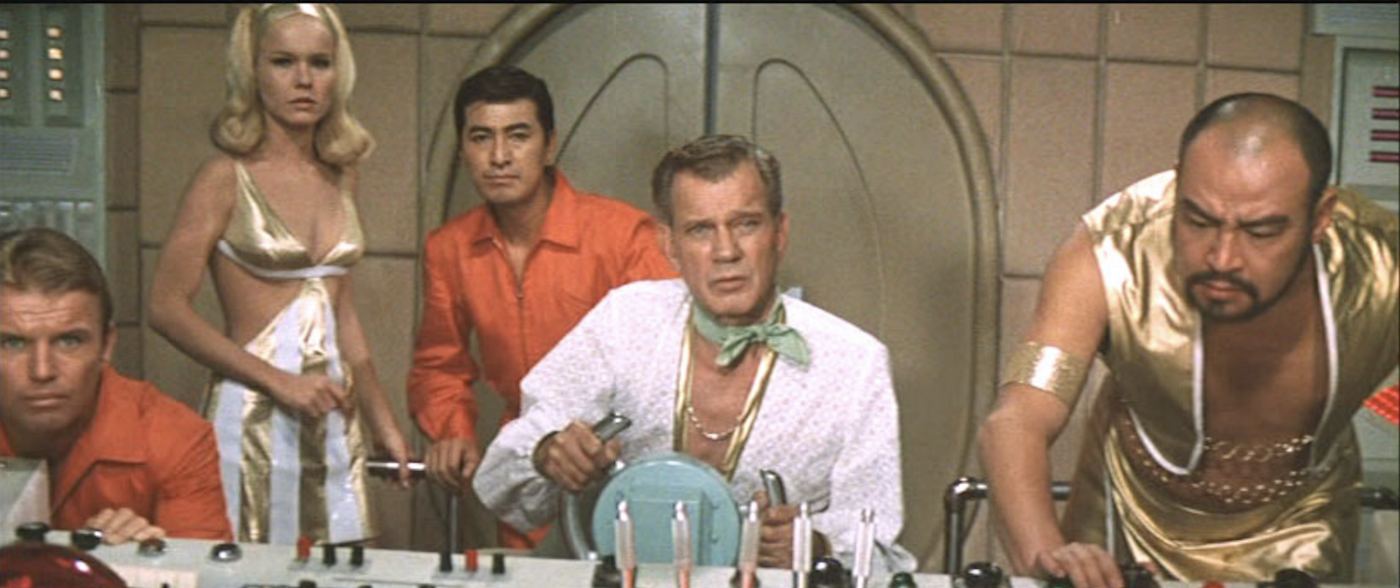
Miloš Forman directed Amadeus in 1984. It was a movie version of the hit play by Peter Shaffer from 1979. Shaffer never claimed that the story was historically accurate, but its foundation was based on factual information about Mozart's life.
In the film, there is a scene in which Constanze, Mozart's wife, goes in secretly to visit Emperor Joseph’s court composer, Salieri. She has come to ask if her husband could be considered for a court appointment. Mozart is terribly irresponsible with money, and she is hoping a steady job will help balance their budget. The meeting between Constanze and Salieri is most likely fictional, but the real Mozart was indeed frivolous with money, to the chagrin of his young wife.
Constanze is innocent and naive, but simultaneously alluring. She is wearing white, a symbol of purity, but she is showing quite a lot of cleavage and wearing bright red lipstick.
Before Constanze comes to meet Salieri, we learn that he is bitterly jealous of Mozart’s talent, and the ease with which the young composer writes one stunningly beautiful piece after another. Salieri is bitterly determined to scuttle Mozart’s career, so when Constanze unexpectedly visits him, he is excited by the possibilities this rendezvous might present. You can see the Machiavellian wheels spinning behind his eyes as he tries to find a way to exploit the opportunity.
His first move is to use his prestige and charm to seduce her. It is not a literal seduction. Salieri swore an oath of celibacy in an effort to gain musical inspiration from God. Salieri doesn’t want to sleep with Constanze, but he wants to use his aristocratic sophistication to gain control over her.
He offers her a tantalizing delicacy. "Have you ever had these?", he asks. “They are called Capezzoli di Venere." He pronounces the Italian as if he has let slip a naughty, little secret, and then translates the name for her: “Nipples of Venus.” Constanze is playfully scandalized, just as Salieri hoped she would be.
Whoever did the research to find an 18th-century dessert, and then make it, deserves a special mention. It is a perfect lure. Each candy is white with little raisin nipples. When Constanze bites into one, she delicately blinks as her teeth sink into its luxury. It's a deeply sensual moment, reminiscent of Nastassja Kinski biting into the strawberry in Roman Polanski's Tess.

Constanze hands Salieri a portfolio of Mozart's sheet music and asks for help. Salieri asks if he can take the music and look it over later, but Constanze explains that the musical scores are all originals. They are the only copies of the pieces as written down by Mozart.
Salieri is surprised and opens the portfolio to review some of the sheets. Immediately, he notices that there are no corrections or alterations of any kind. This unbelievable, practically impossible feat is actually true to life. The real Mozart claimed that when he composed music, he was simply writing down what he heard in his head. His students witnessed him do this. He would even write while playing pool. As Salieri says in the film, it was as though Mozart was simply taking dictation.
As a point of reference, compare below the difference between one of Beethoven's drafts on the top to one of Mozart's originals underneath it. It's inhuman.

In the movie, Salieri reads through the notation, and we can hear the music playing in his mind. He begins to sway as he gives way to the beauty of the melodies. He gently drifts into the music, but suddenly brushes off the reverie, frustrated by his own admiration for the man he hates. He tries reading a different piece, but he gets carried away by it again. Each time he begins reading a new piece, he slips away into ecstasy. Salieri, who had intended to seduce Constanze, is instead being seduced by Mozart's music.
Overtop the scene, we hear the older Salieri narrating. We momentarily cut to Salieri in an insane asylum, where he will eventually end up. It's clear that as he relays the story, the seduction is happening all over again.
There is a potent line where he explains, "Here again was the very voice of God! I was staring through the cage of those meticulous ink strokes at an absolute beauty." When Salieri says the word "cage", his fists are balled up in a subtle mixture of frustration and reverie, but they also mimic the appearance of Salieri being in a cage. He is trapped by his mediocre talents and cannot make his music soar like Mozart's. Salieri must watch from behind bars as Mozart flies high above him.

Salieri is played by F. Murray Abraham, who won an Oscar for his portrayal. Through his rhythm, intonation, and especially facial expressions, Abraham manages to relay Salieri's deep admiration, even awe at Mozart's talent, while simultaneously showing us the bitter envy and rage in the pit of his stomach. It is this conflict that makes the scene a seduction. Salieri is swept away against his will.
At the climax of the scene, Salieri has been completely transported by the music and forgets he is holding onto the portfolio. His eyes close and his hands relax, spilling all the sheet music to the ground in a metaphorical orgasm. Constanze is caught by surprise and asks anxiously, “Is it not good?” Salieri can hardly believe she could ask such a question. “It is miraculous”, he replies, unable to contain his admiration.

If you enjoyed this article you might also enjoy this https://filmofileshideout.com/archives/favorite-scenes-%e2%84%967-a-streetcar-named-desire/



